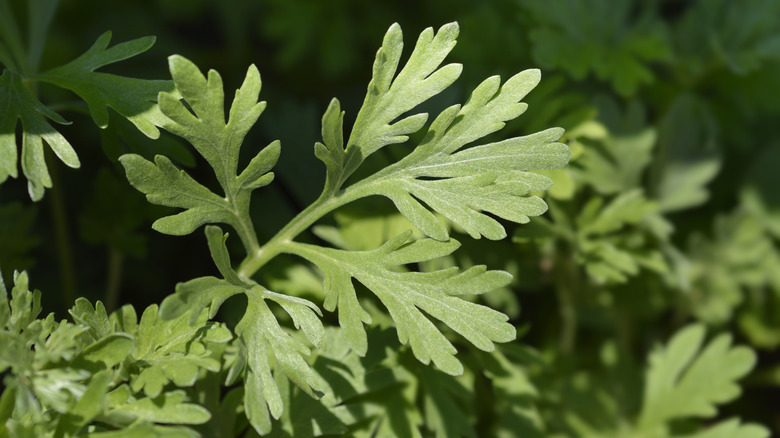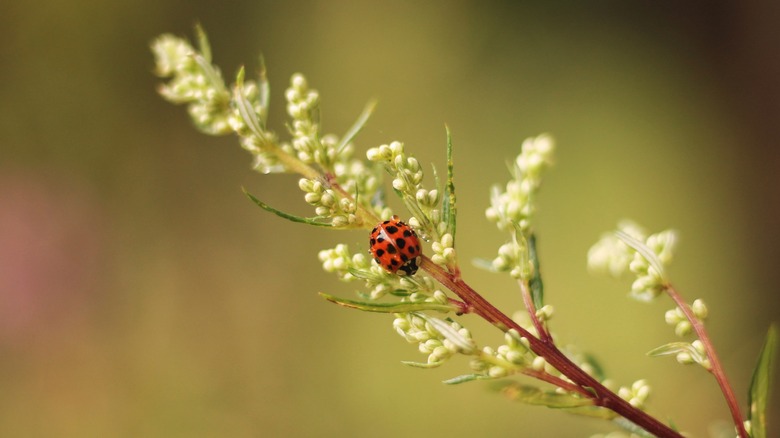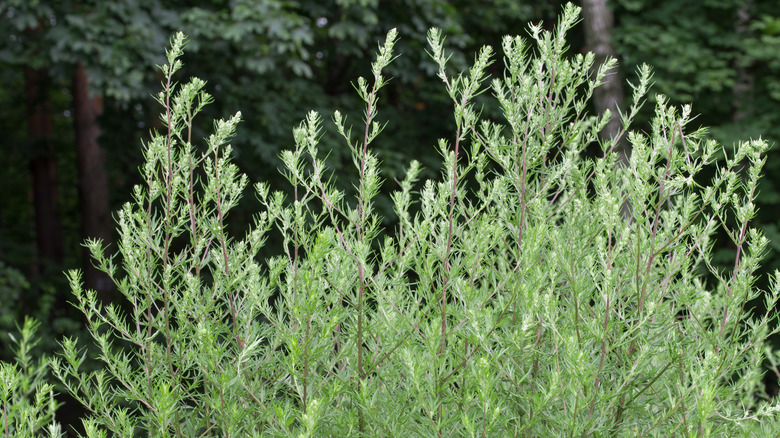Why It's Not A Truly Terrible Thing If You Have Mugwort Growing In Your Lawn
Many weeds have benefits, such as dandelion greens that make tasty salad additions and clover flowers that attract butterflies. Mugwort is one such beneficial weed that can even help your lawn or garden thrive. This perennial weed can grow up to 5 feet tall and has bright green leaves that often smell faintly of sage. There are tiny hairs on the stems and undersides of the leaves, and it produces small, plain flowers in groups at the end of the stems. Unlike some weeds, mugwort tends to stand out, making it easy to spot.
Despite its ugly-sounding name, mugwort has many benefits. It can clean and improve soil, attract pollinators, and reduce erosion. Understanding why it is worth keeping can save you from unnecessary lawn care to get rid of it. However, it is an invasive species, and keeping it around may not work well for every yard. For example, if you are working to promote native species in your area, mugwort can create unwanted competition. Yet, if your lawn or soil is prone to issues, mugwort might actually help fix some of those problems for you.
How mugwort can help your yard
Studies have shown that mugwort is effective at absorbing soil contamination from toxic metals. While you wouldn't want to consume a plant that absorbs toxins like that, it may slightly improve the health of a yard in a polluted area. This pollution can come from nearby roads, old pesticides, and even the air itself, so it may go unnoticed.
If your lawn contains just one type of grass (as opposed to a diverse tapestry lawn), the addition of mugwort may also boost soil health. Plant diversity is linked to soil health, which is why crop rotation is essential in farming. Therefore, incorporating mugwort into your lawn can provide a nutrient boost through a small bit of biodiversity. Thanks to its extensive root system, mugwort also helps prevent soil erosion. Although it spreads underground and can be difficult to get rid of, it helps keep your soil in place. Lastly, mugwort flowers can attract pollinators and other beneficial bugs to your yard, which can promote the growth of nearby gardens and other plants.
What to do if you see mugwort growing in your yard
Mugwort may not benefit all yards, especially tapestry lawns focused on native species. However, if you're concerned about pollution, soil health, or erosion, it might be worth keeping mugwort around. It's best to let it be rather than actively encourage its growth, as you don't want it to take over. You can mow mugwort just like the rest of your grass. This may diminish the population, but probably won't get rid of it altogether.
Consider reseeding any bare spots on your lawn to prevent mugwort from spreading too far. If you see mugwort taking over, you might need to take steps to control it. Herbicides can be harsh, but you may be able to smother unwanted patches of mugwort using newspaper layered with mulch. However, if it's not taking up too much space, try leaving the mugwort alone and see what it does for your lawn.


